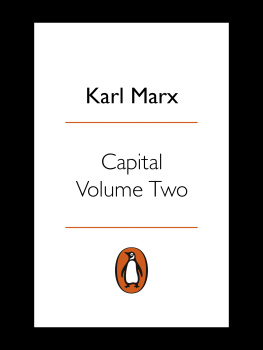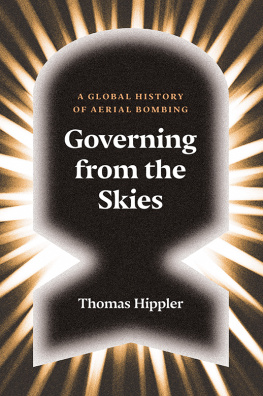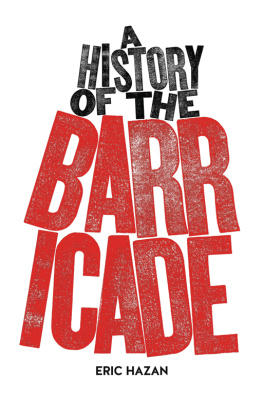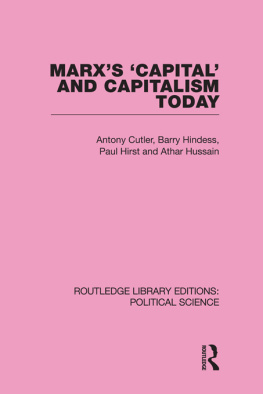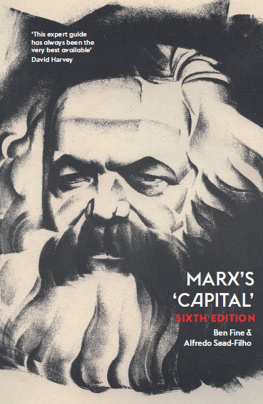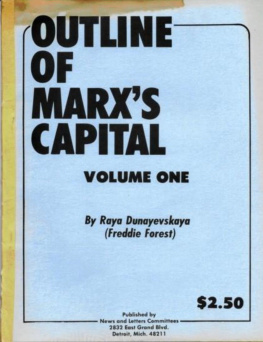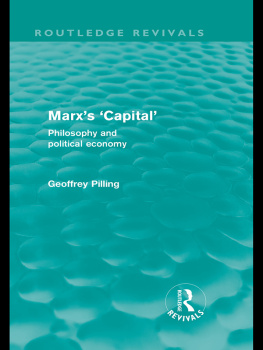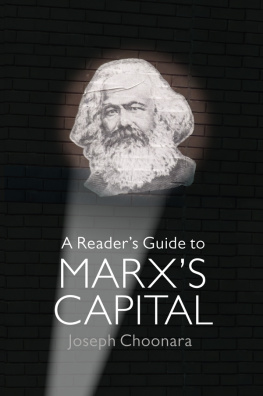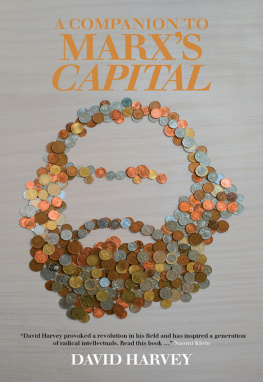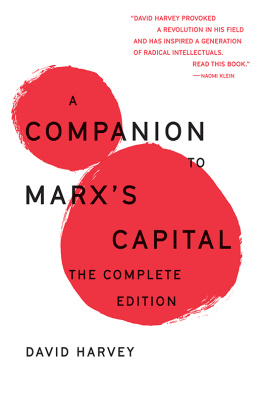Fernbach David - Capital 2
Here you can read online Fernbach David - Capital 2 full text of the book (entire story) in english for free. Download pdf and epub, get meaning, cover and reviews about this ebook. City: London, year: 1991;2006, publisher: Penguin Books Ltd, genre: Religion. Description of the work, (preface) as well as reviews are available. Best literature library LitArk.com created for fans of good reading and offers a wide selection of genres:
Romance novel
Science fiction
Adventure
Detective
Science
History
Home and family
Prose
Art
Politics
Computer
Non-fiction
Religion
Business
Children
Humor
Choose a favorite category and find really read worthwhile books. Enjoy immersion in the world of imagination, feel the emotions of the characters or learn something new for yourself, make an fascinating discovery.
- Book:Capital 2
- Author:
- Publisher:Penguin Books Ltd
- Genre:
- Year:1991;2006
- City:London
- Rating:4 / 5
- Favourites:Add to favourites
- Your mark:
- 80
- 1
- 2
- 3
- 4
- 5
Capital 2: summary, description and annotation
We offer to read an annotation, description, summary or preface (depends on what the author of the book "Capital 2" wrote himself). If you haven't found the necessary information about the book — write in the comments, we will try to find it.
The forgotten second volume of Capital, Marxs world-shaking analysis of economics, politics, and history, contains the vital discussion of commodity, the cornerstone to Marxs theories.
Capital 2 — read online for free the complete book (whole text) full work
Below is the text of the book, divided by pages. System saving the place of the last page read, allows you to conveniently read the book "Capital 2" online for free, without having to search again every time where you left off. Put a bookmark, and you can go to the page where you finished reading at any time.
Font size:
Interval:
Bookmark:

Volume Two
Introduced by
Ernest Mandel
Translated by
David Fernbach

Zur Kritik der politischen konomie, Berlin, 1859. English translation: A Contribution to the Critique of Political Economy, tr. S. W. Ryazanskaya, London, 1971.
Theorien ber den Mehrwert was first published in 190510, edited by Karl Kautsky, who took on the work after Engelss death. This edition, however, was far from accurate, and is now generally neglected in favour of that published by the Institute for Marxism-Leninism, Berlin, 1956-62. The remaining part of Marxs gigantic Zur Kritik ; of 18613, approximately half its total 1 million words, has yet to be published
Adam Smith, author of The Wealth of Nations (1776), gave bourgeois political economy its classical form, in a work that was both scientifically important and a major ideological weapon for the developing industrial capitalist class. For both these reasons, Smiths work forms a constant reference point for Marx throughout Capital. In Theories of Surplus-Value, in particular (Part 1, Chapter III), Marx develops his fullest critique of Smiths fundamental theoretical conceptions. See also Chapters 10 and 19 in the present volume.
In the present volume, these references have been replaced throughout by corresponding references to the Pelican Marx Library edition. The reader is also reminded that the division there into chapters and parts follows that made by Engels for the original English edition of 1886, and is different from that of the various German editions. The table on p. 110 of Volume 1 shows the relationship between English and German divisions.
In fact, nine years were to elapse before the publication of Volume 3. See Engelss Preface to that volume.
The academic socialists (Kathedersozialisteri) mentioned here, who flirted with socialism from the safety of their university chairs, first made their appearance in the 1870s. Prominent among them were Gustav Schmoller, Lujo Brentano, Adolph Wagner, Karl Bcher and Werner Sombart. They were outside and generally opposed to the Social-Democratic Party. State socialism, the ideology that presents state intervention in the capitalist economy as ipso facto socialist, was a constant object of attack by Marx and Engels (as in the Communist Manifesto, ch. Ill, 2, and the Critique of the Gotha Programme). In Germany in the 1880s it was Bismarcks nationalization of the railways, in particular, that was dressed up as socialist in this way, mainly by the academic socialists. Johann Karl Rodbertus-Jagetzow, a Prussian landowner, was the doyen of state socialism in Germany, in practice seeking state support for the development of large-scale capitalist agriculture.
Rodbertus had in fact died in 1875. The letter published in the Tubingen Zeitschrift was written on 14 March 1875.
) and bourgeois sociologist. Marx refers to him in his Notes on Wagner.
The third of Rodbertuss Soziale Briefe an von Kirchmann, in which he put forward his theory of rent against Ricardos, was published in Berlin in 1851.
). Friedrich List, the most important German economist of the first half of the nineteenth century, accurately expressed the demands of the embryonic industrial bourgeoisie in Germany, and is particularly remembered for his forceful arguments for protective tariffs.
Ferdinand Lassalle, who at this time professed to be a disciple of Marx, one of only a small handful who had been able to remain in Germany after the failure of the 1848 revolution, became in the early 1860s the inspirer and chief organizer of the first mass movement of the modern German working class. Politically, however, he played an ambiguous role in relation to the Bismarck regime; see The First International and After, Pelican Marx Library, pp. 20ff.
Theories of Surplus-Value, London, 196972, Part II, pp. 1516.
), and his work already represehts a transition towards the classical bourgeois analysis of capitalist production by Adam Smith. It is with a short chapter on Steuart, therefore, that Marx opens his Theories of Surplus-Value.
This passage and those following are quoted by Marx in the manuscript of Theories of Surplus-Value (Part I, Chapter III, 2; pp. 7885 of the English translation), interspersed with Marxs comments, as cited below by Engels. Marxs emphases in his quotations from Smith, however, differ somewhat in the published version and thus presumably in the manuscript as well from those made by Engels here.
op.cit., p. 82.
ibid., p. 85.
). Like that of Adam Smith, Ricardos work forms a constant reference point throughout Capital, and the bulk of Part II of Theories of Surplus-Value, in particular, is devoted to a critique of Ricardos ideas.
John Ramsay McCulloch vulgarized Ricardos doctrines; the description was applied to him by a critic, Mordecai Mullion (pseudonym of John Wilson), in Some Illustrations of Mr McCullochs Principles of Political Economy, Edinburgh, 1826.
Theories of Surplus-Value, Part III, pp. 2389.
ibid., p. 254.
Robert Owen was the great English representative of Utopian communism in the early nineteenth century, See in particular Engelss Anti-Dhring, Part III Socialism, Chapter I Historical.
The Poverty of Philosophy, London, 1966, p. 60.
Besides Marxs brief reference in The Poverty of Philosophy, a chapter of Theories of Surplus-Value is devoted to Opposition to the Economists (Based on the Ricardian Theory) (Part III, Chapter XXI). This deals principally with the works of William Thompson, Piercy Ravenstone and Thomas Hodgskin. Thomas Edmonds, however, the author of Practical Moral and Political Economy (1828), does not reappear in Theories of Surplus- Value.
Karl Schorlemmer, a German exile and Professor of Organic Chemistry at Manchester University from 1874, was a personal friend of Marx and Engels, and accompanied Engels on his visit to the United States in 1888. He was one of the first natural scientists to adhere to the philosophy of dialectical materialism, as well as a member of the German Social-Democratic Party.
Common littrateur. Here an allusion to R. Meyer.
). Wagner specifically attacked Marxs economic theory in his book The General or Theoretical Doctrine of Political Economy (1879). Marxs manuscript Marginal Notes dealing with Wagners critique, written in 18812, form his final economic writing.
Briefe and social politische Aufstze, op. cit., p. 111.
English translation, pp. 519.
Herr Rodbertus. New Theory of Rent, pp. 15113 of Theories of Surplus-Value, Part II, London, 1969.
Jean-Charles Simonde de Sismondi was a Swiss economist and historian. Contemporary with the Utopian socialists, he also criticized certain of the contradictions of the developing capitalist society, but this was from the restricted standpoint of the petty bourgeoisie; Sismondi idealized petty commodity production.
For Marxs explanation of the rise of vulgar economies, see the Postface to the second German edition of Capital Volume 1, Penguin Marx Library edition, pp. 978; also Chapter 1, note 34, pp. 1745.
Font size:
Interval:
Bookmark:
Similar books «Capital 2»
Look at similar books to Capital 2. We have selected literature similar in name and meaning in the hope of providing readers with more options to find new, interesting, not yet read works.
Discussion, reviews of the book Capital 2 and just readers' own opinions. Leave your comments, write what you think about the work, its meaning or the main characters. Specify what exactly you liked and what you didn't like, and why you think so.

